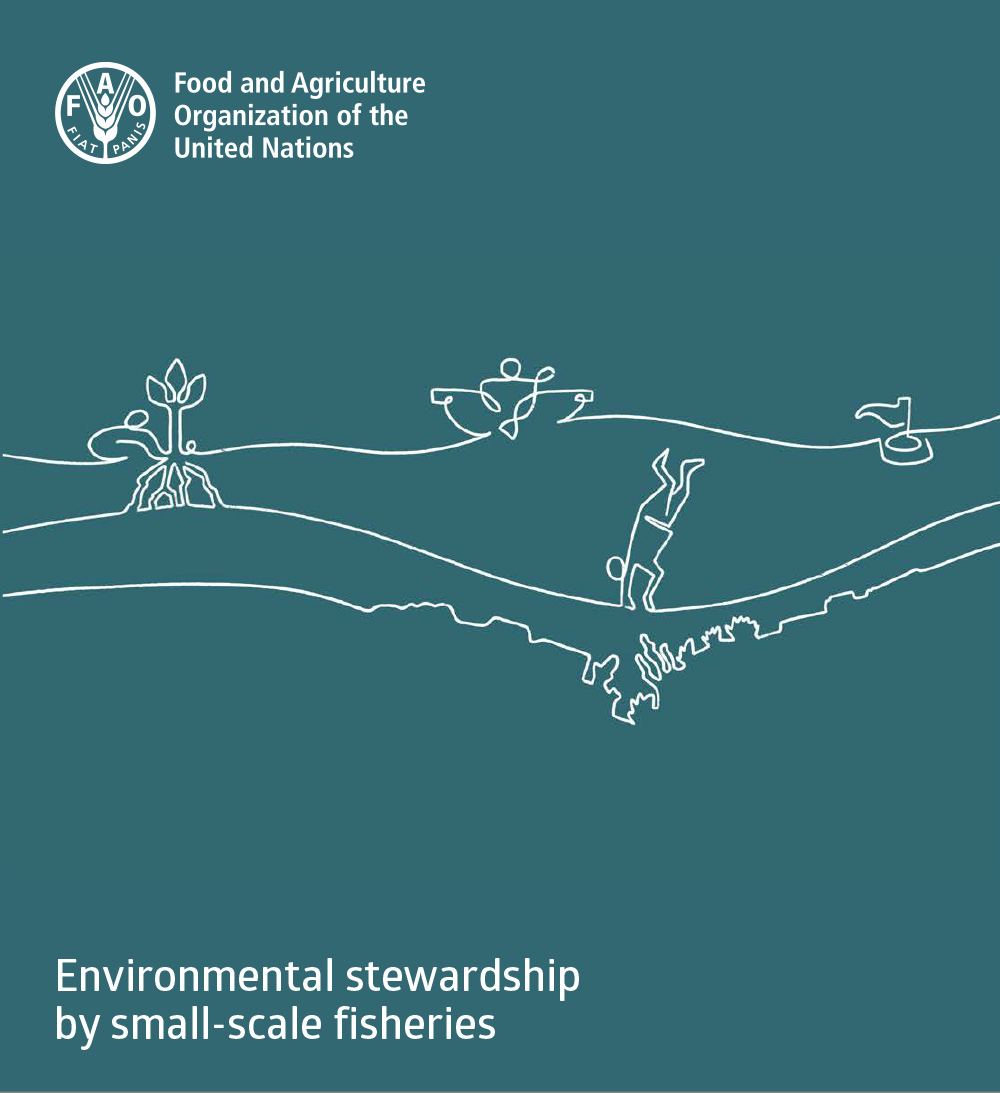SSF Stewardship Handbook
Environmental Stewardship by Small-Scale Fisheries explores the many ways in which small-scale fisheries – fishers and fishworkers as well as their communities and organizations – effectively conserve fishery resources and aquatic environments. Indeed, small-scale fisheries are at the heart of environmental conservation and stewardship, which is expressed as both a perspective and a practice, a way of engaging with the natural world and the local environment. This stewardship is motivated by values, relationships, culture, and spiritual aspects, along with the pursuit of sustainable livelihoods and community well-being.
The many forms of stewardship include managing fisheries for sustainable use, protecting and restoring local ecosystems, engaging in advocacy and education, and working with others in stewardship partnerships. These are illustrated in the publication through real-world examples, contributed by many small-scale fishing communities and organizations, around the world. These examples lead to insights on lessons learned, good practices and ingredients of success in stewardship, the crucial supporting and enabling activities underlying stewardship, and how policymakers and others can support stewardship. Environmental Stewardship by Small-Scale Fisheries is accompanied by the SSF Stewardship website, providing a detailed look at a wide range of stewardship experiences, by participating fisher organizations and fishing communities.
Environmental Stewardship by Small-Scale Fisheries, written by Anthony Charles, Alison Macnaughton, and Shannon Hicks, is the result of a collaboration between the Food and Agriculture Organization of the United Nations, Saint Mary’s University (Canada), and the Community Conservation Research Network.
Table of Contents
- Introduction
- The nature of small-scale fisheries stewardship
- Small-scale fisheries stewardship activities
- Activities supporting and enabling stewardship
- Outcomes and successes of stewardship
- The path forward for small-scale fisheries stewardship






